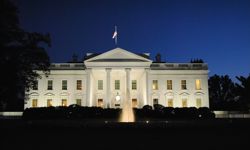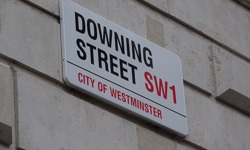
‘Dark day’ for press freedom
The potentially ruinous cost of libel actions in the UK was highlighted by the Appeal Court ruling in May against the award-winning Guardian and Observer journalist Carole Cadwalladr who was ordered to pay over £1 million in costs and £35,000 damages to millionaire Brexit-backer Arron Banks.
Banks sued Cadwalladr over two instances in which she said the businessman had a “covert relationship” with the Russian state – one in a Ted Talk in Canada and the other in a tweet.
The High Court had previously found the journalist could rely on a public interest defence. Three Court of Appeal judges, however, partially upheld the appeal by Banks and said he was caused serious harm by the Ted Talk’s continuing publication after 29 April 2020, when the Electoral Commission announced it accepted the National Crime Agency’s finding that Banks had not committed any criminal offence.
Cadwalladr said: “It is a dark day for press freedom in the UK. This decision has huge ramifications for any news organisation or journalist who believes that the overwhelming public interest of a story will enable them to speak truth to power.”
Fiona O’Brien, UK bureau director of Reporters Without Borders, warned: “These exorbitant costs – ordered despite the court’s recognition that Carole Cadwalladr’s work was at the time of publication covered by a public interest defence – send a chilling message to investigative journalists everywhere.”
Cadawalldr was personally sued by Banks and does not have the protection of a publisher to meet the libel costs and damages. She launched a Go Fund Me appeal to raise money for an appeal which could go to the Supreme Court and the European Court of Human Rights.
The case shows again how only media companies with very deep pockets can risk going to court to defend defamation cases in the UK. Costs of more than £1million could sink a local paper or independent magazine. No wonder they must think very carefully before taking on the rich and powerful in court.
Turning the tables on libel lawyers
Tax lawyer Dan Neidle became an unlikely press freedom hero when he investigated Conservative party chairman and former Chancellor of the Exchequer Nadhim Zahawi’s tax affairs and stood up to threatening letters from libel lawyers.
Neidle’s long running investigation on his Tax Policy Associates website, prompted by a story in the Independent, led to the prime minister sacking Zahawi in January after he was found to have breached the ministerial code by failing to declare an HMRC investigation into his tax affairs.
He also turned the tables on the libel lawyers who sent him aggressive letters by reporting them to the Solicitors Regulation Authority.
Neidle wrote in The Times about how Zahawi’s lawyers had come after him: “I was surprised to receive an email from Osborne Clarke headed ‘without prejudice’. It demanded I retract my allegation of ‘dishonesty’ that same day and said I couldn’t publish the email without ‘serious consequences’. It wasn’t a brilliantly constructed letter, and they either misunderstood or mis-stated what I’d said about Zahawi. This just made me more confident I was on the right track.”
Neidle published both ‘confidential’ emails and informed the Solicitors Regulation Authority. He said: “Saying that your libel threat is confidential and can’t be published is usually untrue – and the SRA agreed. On November 29, it sent out a general note warning solicitors to stop sending libel letters that falsely claim to be confidential.”
Writing on Tax Policy Associates, Neidle said: “I was shocked to discover that fibbing about the confidentiality of libel threats is standard practice in the libel world. It has a chilling effect on free speech in this country – the rich and powerful can silence their critics so completely that we don’t even know they’ve been silenced.”
He added: “Without the work of newspaper journalists, I wouldn’t have started looking at Zahawi, wouldn’t have been able to conclude that Zahawi was not telling the truth, wouldn’t have even suspected that a settlement had been made (with penalties!) and certainly the whole thing wouldn’t have reached a mass audience. This isn’t a story of media failure – it’s a story of effective scrutiny from all corners of the media, in the teeth of denials and legal threats.”
Bellingcat case
Libel lawyers and the Treasury came under fire after it was revealed in January that a Russian oligarch was allowed to evade sanctions and access funds to sue a British journalist through the British courts.
Leaked documents obtained by OpenDemocracy showed that Yevgeny Prigozhin, leader of the notorious mercenary Wagner Group, was given a special licence so that he could launch a libel suit against Eliot Higgins, the founder of Bellingcat, who had reported on Prigozhin’s role in Wagner. Prigozhin’s case was ultimately dismissed by the High Court in London.
Matthew Jury, the lawyer who defended Higgins, told the Financial Times: “Prigozhin, a man whose organisation has murdered journalists, sought to use the English courts to silence and intimidate our free press. His lawyers facilitated that. That should be a cause for deep shame and concern.”
Higgins was left with estimated costs of £70,000.
National Security Bill
The National Security Bill causes alarm among journalists despite attempts by the Home Office to redraft the legislation to tackle media concerns about its impact on investigative journalism.
The Times warned in a leader in March: “Clauses in the bill would make it an offence punishable by up to 14 years in prison to provide information that may materially assist a foreign intelligence service. The subject does not have to know for certain that the information will assist foreign spies. To be caught by the bill, a handler of sensitive information ‘ought to have known’ it was ‘likely’ to ‘materially assist’ another power. This is a minefield for journalists, who in all likelihood will have no idea where an investigation will take them.”
The Law Commission had recommended reform of the Official Secrets Act should include a public interest defence. The government claims offences in the National Security Bill target harmful activity by states, not leaks, whistleblowing activity or public interest journalism.
Journalists arrested
In December, Hertfordshire police admitted it unlawfully detained a photographer who was covering climate protests on the M25. Ben Cawthra was arrested while covering protests by Just Stop Oil supporters who had climbed gantries to disrupt traffic.
Cawthra, a director of London News Pictures, was held for 16 hours. Hertfordshire police admitted their officers acted unlawfully by arresting him and violated his right to free speech, and the force accepted liability for false imprisonment over his detention.
His lawyer, Jules Carey, of Bindmans, said the case represented an important clarification of the principle of freedom of the press: “It is vital to the health of a democracy that journalists can work without fear of arrest or detention by the police.”
LBC reporter Charlotte Lynch was also arrested while covering the protest and was detained for five hours before being released without charge.
Privacy victory
Javad Marandi, a businessman whose foreign companies were part of a global money laundering investigation and who is a major donor to the Conservative Party, lost a 19-month legal battle with the BBC and Evening Standard to remain anonymous.
The BBC said the judgment eventually allowing Marandi to be named in May was “a milestone for freedom of the press amid growing privacy laws in the courts.”
A National Crime Agency (NCA) investigation found some of Mr Marandi’s overseas interests had played a key role in an elaborate money-laundering scheme involving one of Azerbaijan’s richest oligarchs.
SLAPP reform
MPs last year named and shamed libel law firms that acted for Russian oligarchs using “lawfare” to silence journalists. MPs like David Davis say there is still “an appetite” in Parliament for anti-SLAPP [Strategic Lawsuit Against Public Participation] legislation to counter the type of libel actions used by the rich and powerful to gag journalists.
In June, the government announced amendments to the Economic Crime and Corporate Transparency Bill which will include an early dismissal mechanism on SLAPP cases relating to economic crime. The onus will be on complainants to prove their case has merit, not defendants.
The government also plans to introduce a cap on the high costs associated with SLAPP cases, but it is understood this would require secondary legislation.
The justice secretary, Alex Chalk, said: “We are stamping out the brazen abuse of our legal system that has allowed wealthy individuals to silence investigators who are trying to expose their wrongdoing. These measures will protect the values of freedom of speech that underpin our democracy and help better protect reporters who are shining a light on their crimes.”
The UK Anti-SLAPP Coalition of media and free speech campaigners has welcomed the government move as a “stepping stone” but wants equal protection to be afforded to everyone speaking out in the public interest regardless of the subject matter.
While reformers say it is essential judges should be able to quickly throw out SLAPP cases, some lawyers argue that SLAPPs are hard to define and a wholesale reform of the defamation law is required.
Geoffrey Robertson KC in his new book ‘Lawfare’ argues the only way to rebalance free speech in favour of press freedom is to change the defamation laws.
He says the changes needed include: Reverse the burden of proof and make claimants prove defamatory statements about them are untrue; presume public interest in free speech outweighs privacy; no injunctions on public interest stories; bring back juries in defamation cases; end libel tourism; televise libel trials; end corporations’ power to sue; and reform the way libel lawyers charge such huge costs which deter opponents.
Robertson writes: “Only once in British history did members of parliament ever think to enshrine free speech in our make-believe constitution, and that was to give themselves an absolute privilege against being sued for anything said in parliament.”
If MPs were on the receiving end of those belligerent letters from libel lawyers and facing £1million costs in going to court to defend themselves, maybe there would be more urgency for reform of the libel laws.
Lawfare: How Russians, the Rich and the Government Try to Prevent Free Speech and How to Stop Them, by Geoffrey Robertson KC, is published by TLS.
This article was first published in InPublishing magazine. If you would like to be added to the free mailing list to receive the magazine, please register here.












